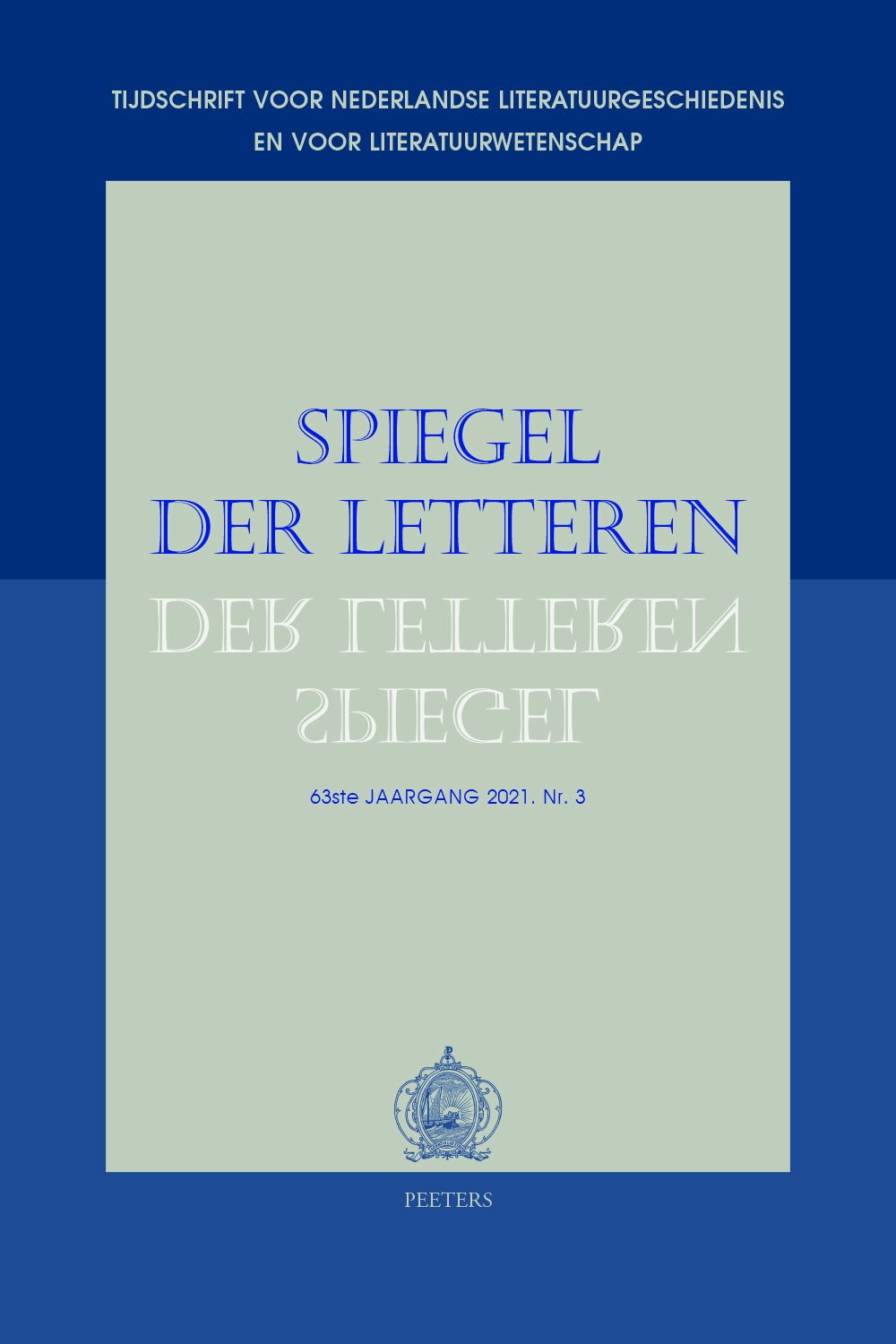 previous article in this issue previous article in this issue | next article in this issue  |

Preview first page |
Document Details : Title: 'Een waarheid zonder sleutel' Subtitle: (On)mogelijkheden van een carnavaleske analyse van Het verlangen van Hugo Claus Author(s): SINTOBIN, Tom Journal: Spiegel der Letteren Volume: 53 Issue: 2 Date: 2011 Pages: 153-181 DOI: 10.2143/SDL.53.2.2119622 Abstract : Literary reviewers were in serious trouble when evaluating the novel Het verlangen [Desire] by Hugo Claus. Whereas some of them tried to formulate an answer to the novel’s numerous riddles but made obvious mistakes in their interpretation, others gave up the attempt and considered it to be a superficial text, without any deeper meaning whatsoever. Some realised that they were unable to find a satisfactory interpretation and counted on professional readers to help them them find a key. This article aims at two things. First of all, it wants to present an analysis of Het verlangen from the perspective of the ‘reading key’ of the carnivalesque: a lot of the actions and conditions of the characters can be explained when one takes into consideration the possibility that they are living in the realm of ever-lasting carnival. Secondly, the limitations of this way of reading will be put to the fore: in one crucial stage of the analysis, the reader is forced to rely on his own associations. By confronting the novel and its analysis with two early non-fictional texts by Claus, the reader recognizes his own reading act in the novel and realizes that he has been deceiving himself in assuming that there was a metalevel for his analysis. The interpretation of the reading act as an act of decoding, of looking for keys, is evoked, frustrated, and reflected upon in this highly self-conscious novel. |
|


